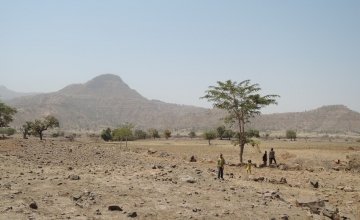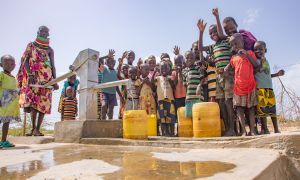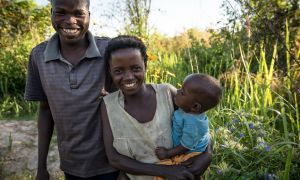
Read our 2023 annual report

Knowledge Hub
Community led total sanitation in Somalia
This paper presents the lessons learned from a pilot CLTS intervention in the challenging context of Somalia. This experience presents the challenges in contexts where highly subsidised latrine construction was previously applied.

Results show that it is still possible to trigger to a great extent a community ‘with a desire for change with regards to open defecation and facilitate them to build their own household latrines without subsidisation’. Hundreds of latrines have been constructed and Open Defecation Free status achieved in two locations in Gedo Region in South Somalia where no subsidy was provided, while not a single latrine has been constructed by households in 14 villages in Gabiley Region where subsidy was provided.
Households that didn’t receive subsidy are still waiting for it and open defecation continues. Commitment, attitude, and mindset of the implementers, community and the local authority are key to success in any context –fragile or stable.
This document covers humanitarian aid activities implemented with the financial assistance of the UK's Department for International Development (DFID). The views expressed herein should not be taken, in any way, to reflect the official opinion of DFID, and DFID is not responsible for any use that may be made of the information it contains.




